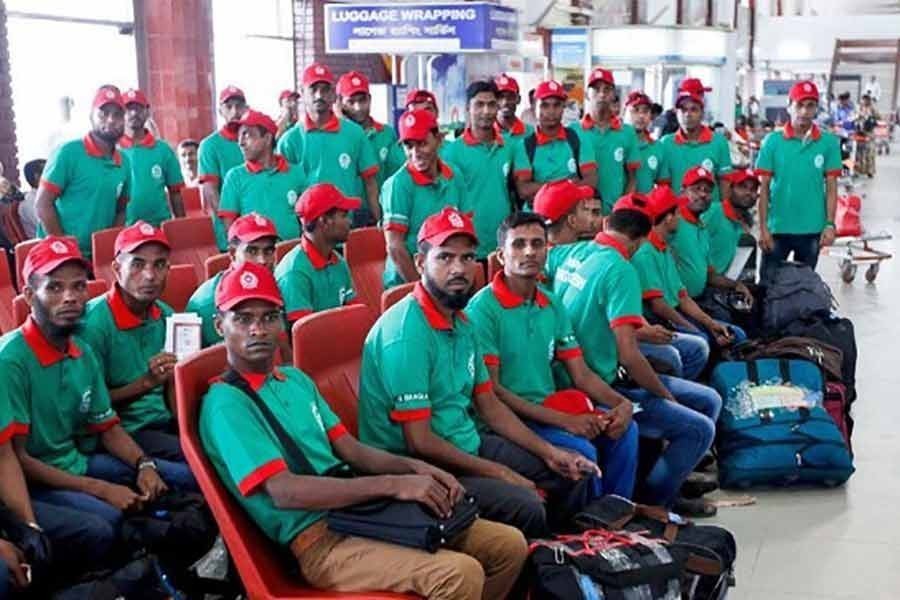The moment the world needs higher cooperation to combat the Covid-19, nations are rather embroiled in conflicts or at least in hostile mood. Consequently, trade between states has been threatened in some cases. Consumers and workforces alike can't withstand the coronavirus-related crises exacerbated by missing global leadership.
In Bangladesh's immediate neighbourhood, China and India clashed along the Ladakh border - conflict that has put at stake two-way trade and investments. The US-China trade war is affecting the global economy, dealt a devastating blow by the Covid-19.
Look at America's tensions with Iran, involvement of Turkey and Egypt in Libyan civil war, proxy war between Iran and Saudi Arabia in Yemen, Russia's presence on the Middle East scene and alleged hacking of US voting system and Oxford University's vaccine research, India's border tensions with Nepal and - all such developments are not compatible with trade transactions that nations have been habituated with.
That is the world where Bangladesh has to deal with her economic interests, whereas the effects of the corona-induced measures are already visible in the country's exports and remittances.
Foreign policy, pundits say, should be guided by national interests, often perceived by the regimes. Pursuing orthodox foreign policy may also mean that a country is rather friendless when it cannot join any of the rival camps simultaneously.
In the bipolar world of the Cold War era, the so-called non-aligned countries showed diplomacy of tilt towards any of the camps - pro-US or pro-Soviet. Despite 'friendship to all, malice to none' policy, Dhaka also made castling common on the chess board. The tendency of making hobnob with 'either this or that' country still shapes the minds of some foreign policy practitioners.
Practically as well, when two major powers are obsessed with xenophobia, moderate countries like Bangladesh are left with tricky choice of maintaining equidistance or balance in policy risking relations with both.
A slight advantage in today's world is: Ideology almost doesn't matter in determining policy towards another nation. But this has also created a disadvantage: Major global powers pursue their national interests in a more aggressive manner, without such altruistic diplomatic mission.
Therefore, Dhaka has the compulsion to redefine some of its foreign policy objectives and strategies, analysing the situation arising out of the new global realities and implications of the pandemic for all international actors.
The recent disruption to global supply chain has brought us certain lesson that minimum local supply should be ensured to meet the local demand during the emergencies. The country's rich people, too, have realised that high quality healthcare services abroad may not be always accessible. Furthermore, the global shutdown indicates, national technological and research capability would be of paramount importance in the upcoming global order.
Dhaka has just emphasised export of manpower for earning remittances. Bangladeshi migration around the world has not been properly harnessed in maximising national interests by striking deals with different countries and actors in the sphere. Non-resident Bangladeshis (NRBs) could have also been useful in transfer of knowledge and attracting foreign investment.
More than any time in the past is important the policy of moderation - the main strength of Bangladesh's policy towards the outside world be pursued energetically. Such policy may be effective in ensuring, for example, that Rohingya people are repatriated, Bangladesh nationals are hired by various countries, Bangladesh's assets are not stolen and taken elsewhere, Bangladeshi institutions work with reputed universities and research organisations, renowned international brands source their labour from Bangladesh and global entrepreneurs and tech giants consider the country as an investment destination.
Branding Bangladesh can't be any forgotten agenda. Whatever we want to achieve in the international arena should be decided at home and in keeping with interest and aspirations of 160 million Bangladeshis inclusive of youth. So, there should be parliamentary and public debates on foreign policy matters. Policymakers can benefit from platforms, like, if floated, the citizens' national security council to discuss contemporary challenges and potentials.
Bangladesh would have to deal with new realities and issues in the post-pandemic period. But such changes may not be 'black and white' soon, so we have to read carefully the subtle changes, now in the making, for taking our next courses of actions that best suit national interests.


